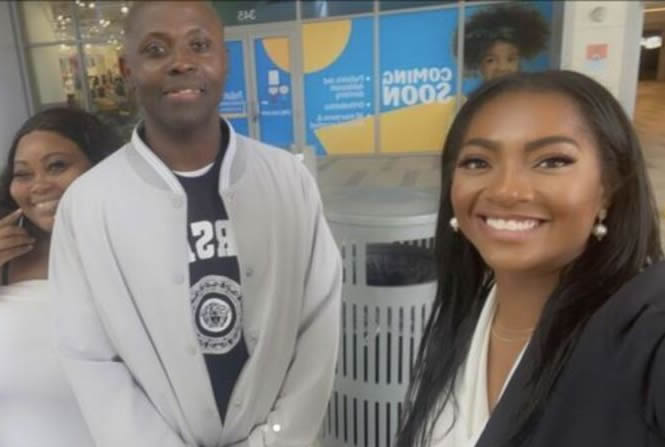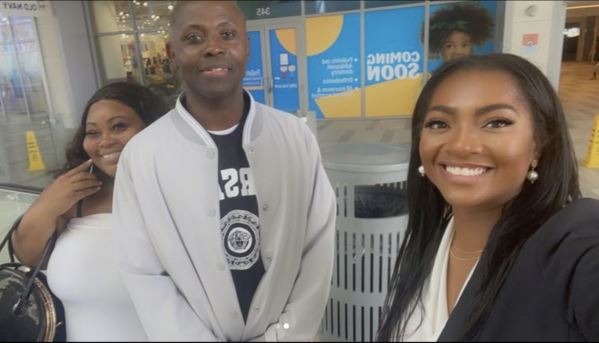‘I Owe Her My Life’: Florida Man Who Spent Over 30 Years in Prison for a Murder He Didn’t Commit is Freed By Rookie Injury Attorney

Original Story:
 | Dated: June 27, 2022
| Dated: June 27, 2022
The lawyer who helped a Black man get exonerated after more than 30 years incarcerated and several appeals was just two years out of law school when she took on the case to set him free, reports show.
Natlie Figgers is a business and personal injury attorney who heard about Thomas Raynard James‘ case from one of his friends. The criminal attorneys who would take on James’ case required fees, and his friends were trying to raise the money when they approached Figgers. She agreed to help James, logging more than 2,000 hours researching and interviewing people to secure evidence of his innocence.

“I couldn’t stop until he was out,” she said. “So, I kept giving them more. It became overwhelming evidence of his innocence.”
James spent 31 years in a Florida state prison for the 1990 murder of an elderly Miami man in a home invasion and robbery. The state freed him in April after a key eyewitness recanted her testimony. Another man named Thomas “Tommy” James was implicated in the home invasion robbery gone wrong because he was associated with Vincent “Dog” Williams, who was fingered for the crime by other witnesses.
Tommy James later told prosecutors that he had planned to commit the crime with Williams, but he was arrested before they could carry out the plan. Another man, Derrick Evans, was later identified as Williams’ accomplice. But Thomas James had spent more than three decades in prison for the murder.
Figgers said she spoke to at least 75 people, including the witness who changed her story. She drove hundreds of miles to gather evidence just weeks after giving birth. Figgers discovered that they were nine sets of prints at the crime scene, but none of them belonged to Thomas James. The man had denied being in the close-knit neighborhood at the time of Francis McKinnon’s murder and had only visited it once or twice years before the crime. But he could not recall his whereabouts at the time of the crime to detectives.
“Who remembers where they were on a given night five months ago?” Figgers said.
Detectives said they found only one Thomas James in the police database and included his photo in the lineup. Tommy James was in jail when McKinnon was killed.
Figgers took all the evidence she found to the Florida Justice Institute’s wrongful conviction unit, which recommends cases for a second look. The Miami-Dade County State Attorney’s office reopened the case in 2021. State Attorney Katherine Fernandez Rundle said her team reviewed over 10,000 pages, examined fingerprints and took the sworn statements from witnesses.
Figgers said the case also got a push from a GQ magazine about James last year and state attorney’s office and Florida Justice Institute staff. The injury and business attorney’s challenge, however, was getting the prosecution’s witness, Dorothy Walton, to speak.

Walton, the victim’s stepdaughter, had identified James in a lineup. She told the Miami Herald in 1991 that she “will not forget that man’s face.” Fernandez Rundle said prosecutors relied on her testimony to convict James.
“She didn’t want to give any statements,” Figgers told NBC News of Walton.
“She didn’t want to talk to people for years. When I went to interview her, she cracked the door open. I knew at that time she was giving me an opportunity to show her why she should do the right thing,” Figgers continued.
“It was such an emotional point for me. I couldn’t help but cry to her. And I told her, ‘If God tells you to give me a call when I leave, please give me a call. I’m going to answer, but I’m doing this because he is an innocent person. And I’m doing this because God put me here.’ And I left.”
Figgers said Walton called 10 minutes later asking how she knew James, if they were related and if he was paying her to look into the case.
“‘No. I’m doing this pro bono.’ She asked me how did I know it wasn’t him? I said, ‘Because I know.’ And she said, ‘I know it wasn’t him, too.'”
James also passed a polygraph test and was set free on April 27. He spent 31 years in state prison and an additional year in jail awaiting trial. He told reporters that he forgave Walton and is grateful Figgers stepped in no one else would.
“I never asked anybody to believe what I was saying,” James said.
“What I did was say for any and everybody to simply admit that if what I was saying was true, that I had been wrongly convicted. But the only way you can reach that conclusion is to delve into the depths of my situation. Natlie Figgers did. I owe her my life.”







